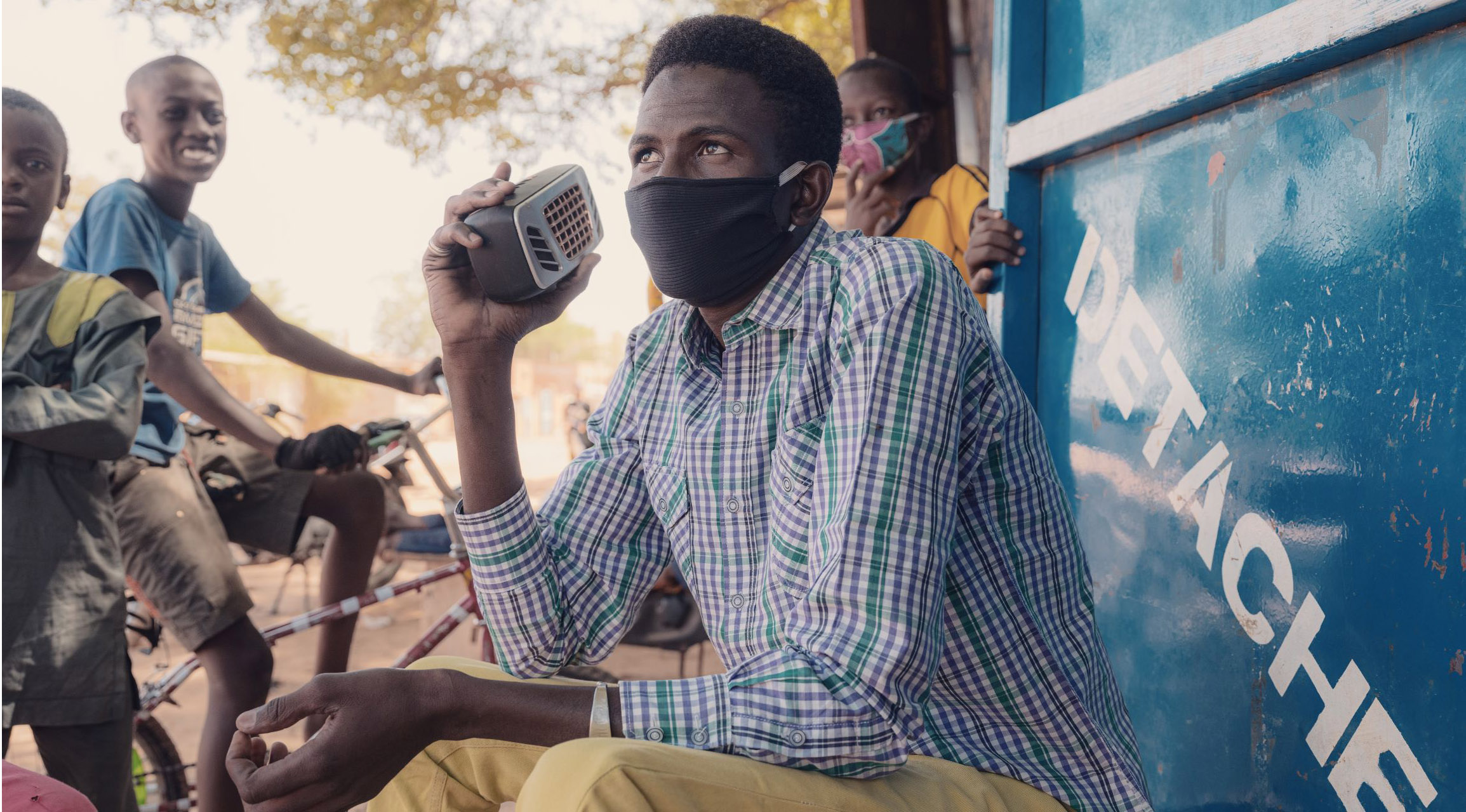With the Covid-19 pandemic comes an “infodemic”: disinformation and rumors spread widely via social media networks. In more fragile countries, traditional media types, in particular radio, play a significant role in tackling this dissemination of disinformation. The strategies implemented by Fondation Hirondelle include content production and innovative research on the ground.
Since March 2020, Fondation Hirondelle, a Swiss organization that has been providing information to populations facing crises since 1995, has been developing a solution in 17 countries in Africa and Asia specifically to help the media and the public deal with the novel coronavirus crisis. The activities implemented are intended to provide reliable, accurate, and useful information on the virus and its wider impact with the help of teams of local journalists supported by Fondation Hirondelle. They also aim to offer editorial, financial, and technical support to local media to help them broadcast high-quality programs throughout the crisis. The objective is to combat disinformation and misinformation relating to the pandemic and its many consequences, and this relies heavily on the analysis of disinformation and the specific information needs of populations.
In Burkina Faso, the University of Sheffield and the Centre National de la Recherche Scientifique et Technologique du Burkina Faso (National Center of Scientific and Technological Research of Burkina Faso), in partnership with Fondation Hirondelle, launched a research project in June with the support of the charitable organization Elrha. The researchers, Dr. Emma Heywood of the University of Sheffield and Dr. Lassané Yaméogo of the National Center of Scientific and Technological Research of Burkina Faso, are working with displaced persons in refugee camps and host communities to gain a better understanding of their concerns, find out what rumors and incorrect information relating to Covid-19 they are exposed to, and where this misinformation is coming from.
The findings of their interviews and analyses are then sent to Studio Yafa, a multimedia information program set up by Fondation Hirondelle in 2019, which has a team of Burkinabe journalists and a network of local media partners. The Studio Yafa journalists are then able to address the disinformation that is circulating and therefore better respond to the information needs of displaced persons and the population as a whole.
“Providing accurate, regular, and timely information on life-impacting issues such as Covid-19 is vital for everyone, but especially for vulnerable groups such as displaced persons,” explains Dr. Emma Heywood. “Radio is often their main source of information. Working with a reliable Burkinabe radio source and through active collaboration, we hope not only to raise awareness among these people of best practices relating to the Covid-19 crisis, but also to ensure that the voices of these communities are heard. ”


